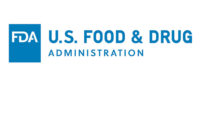Alternative Milk Labeling Leads to Legal Lashings
With the rise of plant-based milk, the dairy industry wants the federal government to restrict use of the “milk” label

Americans are drinking less milk. Milk consumption has dropped by 40% since 1975 and the trend is accelerating as more people embrace plant-based milk alternatives such as oat, almond, rice, and coconut milk. According to the USDA annual milk consumption data, in 2018, the average person in the US consumed 146lb (17 gallons) of milk, down from 247lb (almost 29 gallons) in 1975.
As cow milk sales decline, Americans are gravitating to plant-based milk alternatives believing they are healthier and better for the animals and the environment. Between 2012 and 2017, sales of non-dairy milks grew more than 60%, with almond milk taking a 64% market share, and sales estimated at $2.11 billion in 2017. During that same period, dairy milk sales dropped by 15%, according to research group Mintel. In 2018, sales of milk alternative beverages gained an impressive 9%, according to the Plant Based Foods Association.
With the rise of plant-based milk, the dairy industry wants the federal government to restrict use of the “milk” label to adhere to the FDA’s description of milk as a fluid “obtained by the complete milking of one or more healthy cows.” As of March 2020, legislation is pending in Congress, the USDA is investigating the issue and state legislatures are enacting laws that eventually could limit what can be called milk.
Proponents of the state legislation argue that the word “milk” needs to come off plant-based milk analog labels. In Maryland, the only full-time farmer serving in the state Senate proposed a bill that passed both the state House and Senate arguing, “Plant-based companies are making their money off of the good name of milk.” To avoid disruption of interstate commerce, the Maryland bill and others won’t take effect unless quotas of other states pass similar measures. Nevertheless, other states, including Kentucky, New York, Oklahoma, Virginia and West Virginia, are turning to legislation to restrict use of the term “milk.” Also, two bills are pending in Wisconsin and several other states have passed resolutions urging the federal government to act.
Dairy industry leaders such as Anja Raudabaugh, Western United Dairies CEO, have pushed the FDA and makers of alternative milks to brand their products “almond beverage” or “oat drink,” for example. According to Raudabaugh, dairy lobbyists are tired of trendy newcomers attempting to cash in on the “health halo” of “real milk.” Despite these objections, the FDA has taken no formal action, and almond milk is specifically named as an acceptable label under the FDA current regulations.
The increase in new state bills and resolutions is not the first volley against use of the term “milk” in labeling for plant-based dairy alternatives. In 2013, plaintiffs brought a class action suit against the makers of a variety of plant-based beverages, including “Silk” soymilk, almond milk, and coconut milk. The court found that the public would not confuse plant-based beverages such as soymilk or almond milk for dairy milk in light of the use of the words “soy” and “almond” stating that under the plaintiff’s logic, a “reasonable consumer might also believe that veggie bacon contains pork, that flourless chocolate cake contains flour, or that e-books are made out of paper.”
Several years later, a challenge was brought against Blue Diamond Growers for its use of the term “almond milk” as misleading consumers because they failed to call their product “imitation milk.” Again, the Court was not persuaded, finding that even the least sophisticated consumer would know instantly the type of product they are purchasing.
Nevertheless, plant-based milk labeling is in a state of flux. The lack of federal regulation has prompted states to fill the vacuum with state legislation. Although no state legislation is currently in force, the situation could change, and it is important that manufacturers of plant-based alternative milk products continue to monitor the landscape.
Kathleen Ryan is a trademark attorney at The Ollila Law Group, Boulder, Colorado, and can be reached at kryan@olgip.com.
This article should not be construed as legal advice on any specific facts of circumstances and does not constitute an attorney-client relationship. The contents are intended for general information purposes only and may not be quoted without the prior written consent of the author. The views set forth herein are the personal views of the author.
Looking for a reprint of this article?
From high-res PDFs to custom plaques, order your copy today!






